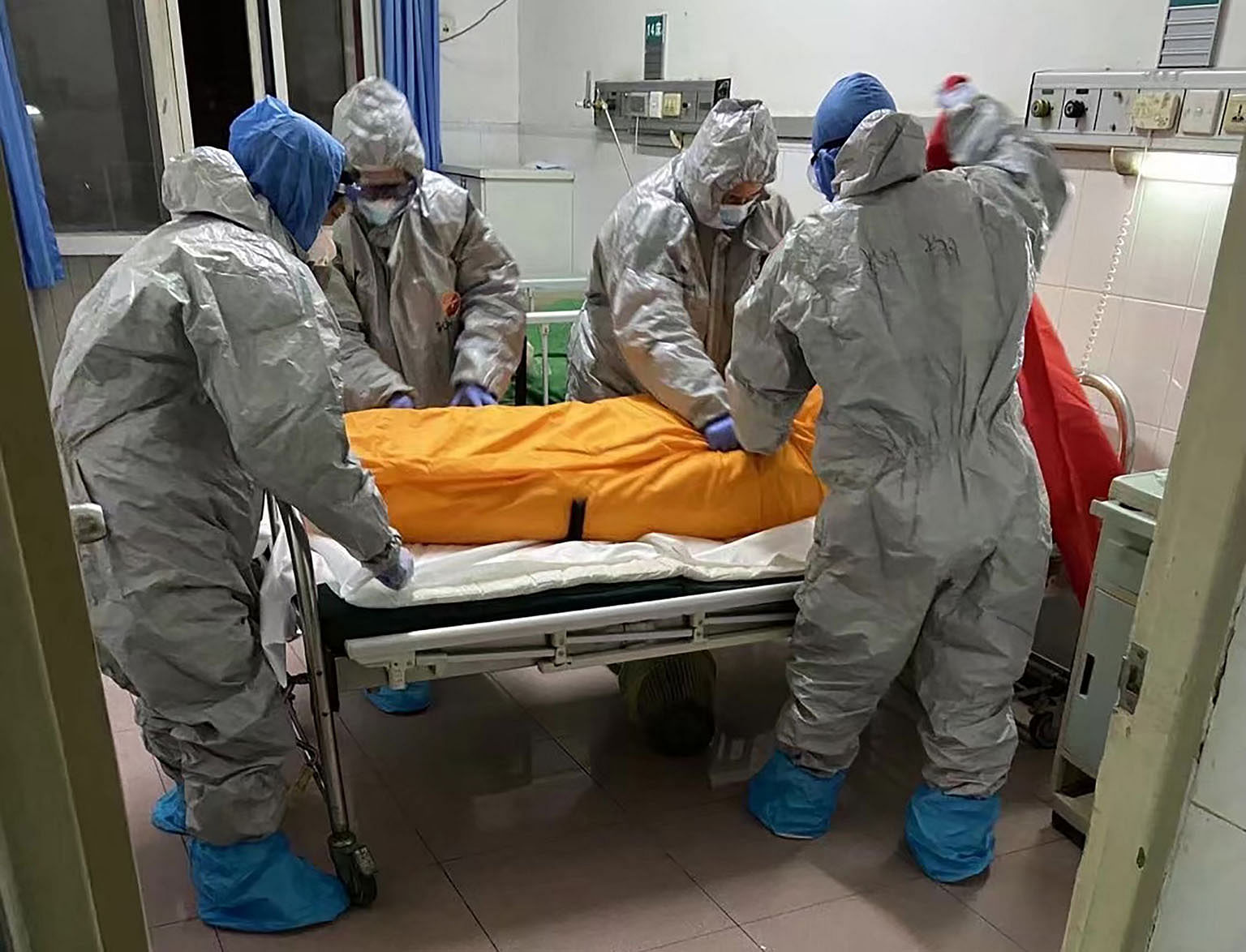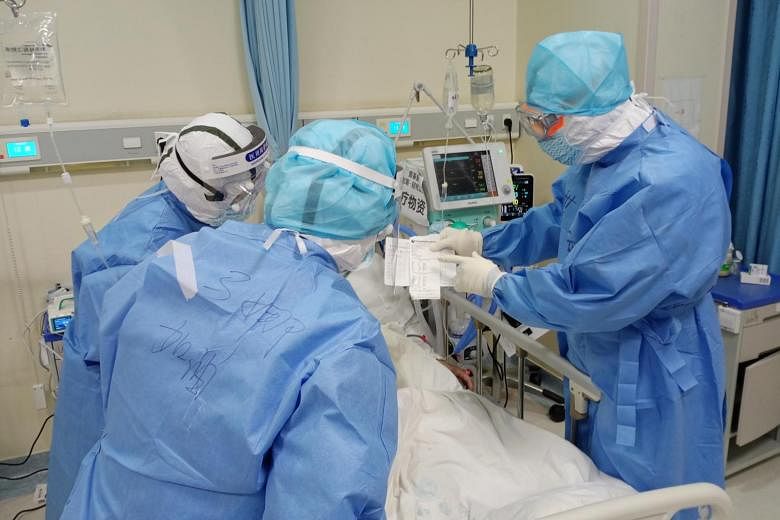Only the day before, he had put his name on a list to volunteer for medical reinforcements in Wuhan, the central Chinese city in the grip of an unknown virus.
When the call came on Jan 27, the third day of the Chinese New Year, Beijing intensive care physician Liu Zhuang felt a mix of emotions - anticipation and anxiety - as the adrenaline coursed through him.
"The severity of the virus, how the disease would behave, and the exact condition of the patients we were facing, we had no idea," Dr Liu said. "It was with a lot of nervousness and unknowns that we departed for Wuhan."
His wife, a homemaker, and their 10-year-old son barely had time to react to the news before he had to go: Volunteer doctors and nurses were given two hours to report to the hospital.
"From the time we got the notice to pack... to the time we arrived at the airport to leave for Wuhan was about six hours," the 39-year-old told The Straits Times.
Days earlier, Wuhan had been put under a strict lockdown to contain the virus, believed to have first surfaced at a market.
But the scale of the outbreak had been downplayed and was slowly becoming clear in the images of overwhelmed hospitals, near-hysterical patients and overworked medical staff that flooded social media, prompting the Chinese government to redirect medical personnel and resources from around the country.
Dr Liu was part of a 138-strong reinforcement team from a collective of Beijing hospitals which consisted of nursing staff, doctors and two administrators. When the team landed in Wuhan late that night, the usually bustling city was deserted as their chartered bus raced through streets still decked out with Chinese New Year decorations.
"On the bus, my feelings were a lot more complex too because we didn't know what to expect the next day," he said.
Appointed one of several operations coordinators, his first task was to reorganise the workflow of the Wuhan Union Hospital by separating the building into clean and contaminated zones.
But his clearly defined duties aside, he and the others could not help feeling overwhelmed.
"We felt the biggest pressure in the first two weeks because the cases we saw were far more severe, and the backup medical supplies had not arrived," he said.
Though some medics were working to the point of exhaustion, Dr Liu said his team was careful to work in rotations of six-to eight-hour shifts to ensure that everyone got enough rest.
Still, beset by anxiety, many team members could not sleep at night. He found the quiet moments hardest, after a punishing day at work, when he was alone in his hotel room and even a simple letter from home could make him emotional.
"Being a boy, my son doesn't really talk about his feelings but he wrote me a letter telling me to take care of myself at work, that school had started virtual classes, and that everything was fine at home. I was very touched," Dr Liu said.
The team spent 65 days in Wuhan, treating 345 patients in their unit. They felt a gamut of emotions, celebrating each recovery, and rallying together whenever a patient died.
As at yesterday, China had reported 90,934 coronavirus infections and 4,745 deaths. Most of these stemmed from Wuhan and the surrounding Hubei province in the earlier half of the year.

The country largely reopened to inter-provincial travel by May, even though Wuhan saw a brief second wave of cases that month, which led to the authorities ordering the entire city of 11 million to undergo nucleic acid testing.
Cities like Beijing, north China's Dalian and Urumqi in the west also had second outbreaks that were quickly put under control with a combination of movement restrictions and mass testing.
While there are still about a dozen new cases reported daily, most are imported as China gradually reopens its borders.
Much of the nation's success in battling the virus comes down to the ability to direct large amounts of resources to the worst affected areas, but it is also the willingness of the entire country to work together that has helped get the disease under control, said Dr Liu.

"I feel that going forward, we still need medical staff, researchers and scientists to work hard together to uncover the nature of this virus, to even better understand how it develops so we can better treat our patients," he said.
And while China appears to have successfully contained the virus for now, it cannot be complacent as the global war has not been won, he noted.
"What we know about the disease is still very little and limited," he said.












